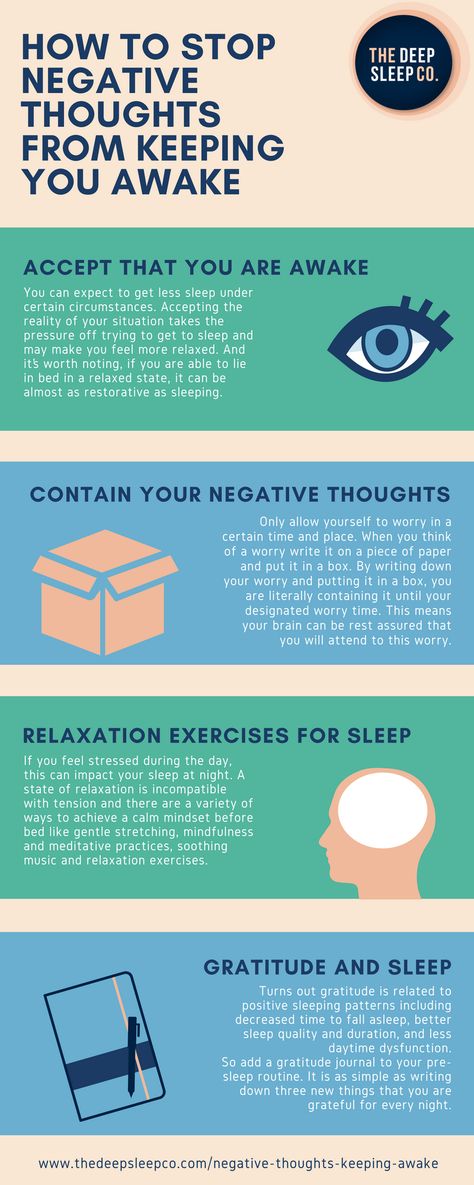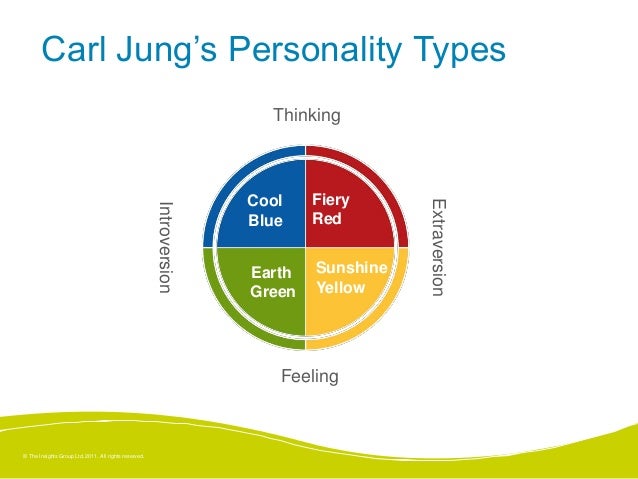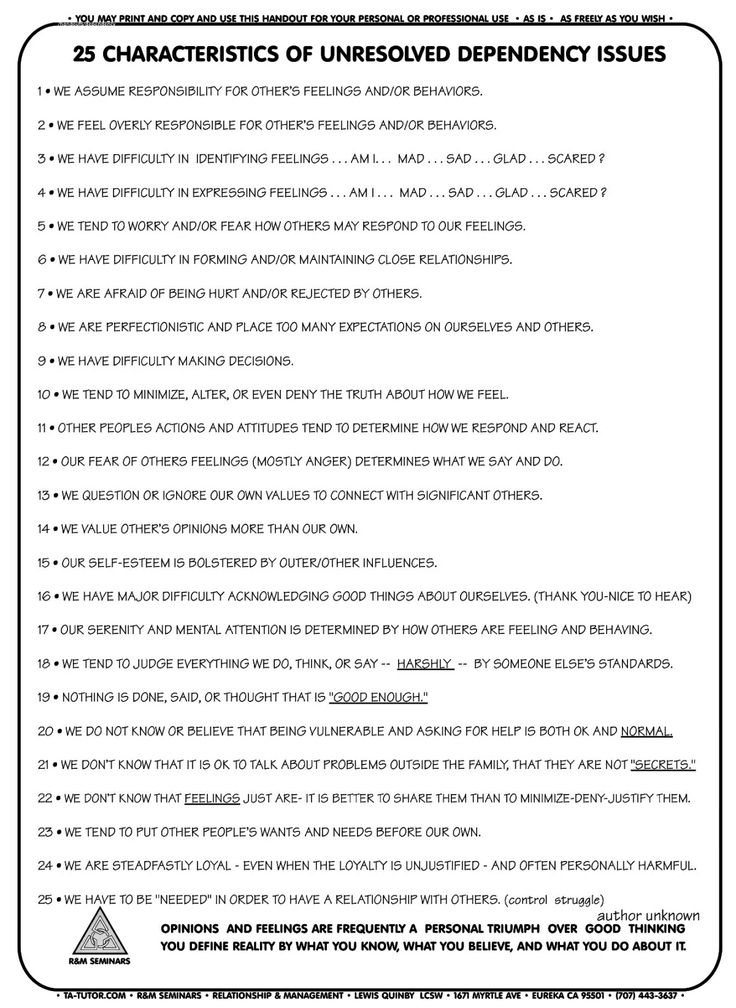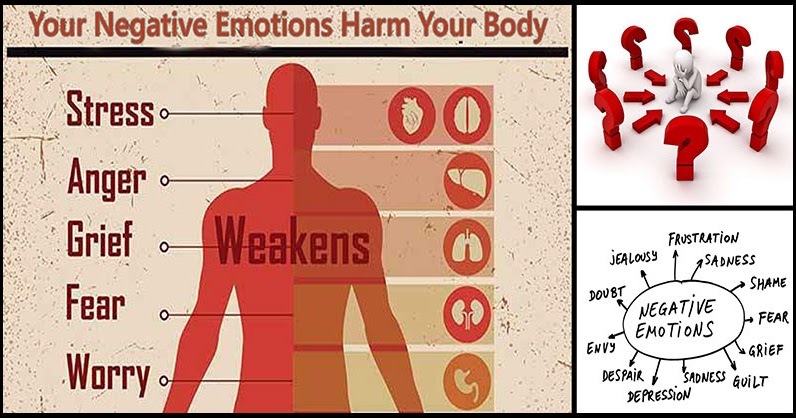Affair partner cut me off
What Can Happen When Affair Partners Go 'No Contact'?
Bill and Jayla have just entered marriage therapy after Jayla discovered Bill’s affair with Sarah. During their first session, the therapist tells them that part of the affair recovery requires that Bill immediately enact a strict “no contact” with his affair partner, Sarah.
The counselor explains that marriage is for two people–not three–and that marital repair won’t begin until Bill fully concludes his relationship with Sarah. It’s further explained that Jayla’s emotional pain will not dissipate while Bill remains in contact with Sarah.
With a heavy heart, Bill tells Sarah that their relationship must end. He explains that his focus is on repairing his marriage and that all contact with her will immediately conclude.
He then deletes and blocks all electronic avenues of contact between himself and Sarah: email, phone, and social media.
Block.
Delete.
Erase.
Done.
Gone.
Like switching off a light, Bill extinguished all contact with Sarah. Now he can begin the arduous task of repairing his marriage with Jayla.
All it took was one succinct communication and a quick click of the block and delete buttons to clear Sarah from Bill’s phone, email, social media—and life.
Or did it?
Did immediately implementing the ‘no contact’ policy conclude the relationship between Bill and Sarah? Everyone knows the relationship with the affair partner must end if recovery is to occur, but does an abrupt and forced ‘no contact’ actually work? Does it bring the affair to a screeching halt?
DECISIVE CLOSURE
When two people are in a relationship, the relationship belongs to them. Together, they decide about the relationship, its future, its direction, and its ending.
Think about your relationship or that of another. Can any outside party direct you or your partner to end your relationship? Can you determine if another’s relationship should continue or conclude? Of course not.
In the ‘no contact’ policy, parties outside the affair relationship are directing the relationship’s conclusion and not the two people within it. These parties are the spouse or partner who did not have an affair and the therapist. You can almost hear them speaking in unison: “If this relationship is going to continue, you must immediately end the affair.” ‘
These parties are the spouse or partner who did not have an affair and the therapist. You can almost hear them speaking in unison: “If this relationship is going to continue, you must immediately end the affair.” ‘
And that’s true.
No one disputes the fact that an affair must conclude. However, that’s different from what’s in question.
The sticky point, however, is that the decision to conclude it—and the act of ending it — needs to be initiated and done by the person in the affair for the best recovery outcomes.
When the person involved in the affair purposefully and intentionally directs the conclusion of the affair relationship, it serves to reassure their partner or spouse. Making an independent decision—and then decisively acting–conveys to the partner they hope to repair with, “I choose you,” and this kind of reassurance is paramount to recovery.
If the party involved in the affair ends the affair relationship because they feel pressured, directed, or forced, it can cause doubt in the partner. For example, the partner may feel that they ended the affair because they were under pressure or had no choice.
For example, the partner may feel that they ended the affair because they were under pressure or had no choice.
An analogous illustration that comes to mind is when an adult instructs a child to deliver an apology for wrongdoing. Knowing he’s in trouble and what his parents expect, the child offers a mumbled “I’m sorry.” The adult remarks that the apology didn’t sound believable. “I said it, didn’t I?” the child says as he shrugs his shoulders. Technically, he delivered the apology—but something about it didn’t quite feel sorrowful. The child obliged the will of the adults. It did not truly come from him.
PREMATURE ENDING
In the infidelity triad, there are two relationship realms. There is a relationship between the committed or married pair in one realm and, in the other, two parties in the affair relationship.
The one with the committed or married pair is tense, conflicted, emotionally dense, distant, and painfully lonely. This realm possesses relationship discord and disconnect.
The affair realm provides intimacy, freshness, novelty, closeness, romance, sentiment, and vitality. It is captivating and gripping to those in it.
Now, think for a moment about the state of a relationship in decline. A relationship near its conclusion will show signs of distress.
The couple may live separate lives, may lack affection and contact, or include bickering and disparaging remarks toward one another. The relationship’s end is approaching.
The affair relationship and for various reasons (including its secret nature), does not exhibit signs of stress, strain, or discord. The relationship is not in decline and is nowhere near its natural conclusion.
The swift implementation of ‘no contact’ abruptly and dramatically brings the affair relationship to a screeching halt that was not near its natural end.
UNINTENDED CONSEQUENCES
‘No contact’ is a tactic designed to bring an affair to a swift and permanent conclusion, yet the sudden, forced, and premature ending of the affair relationship can cause the counter-effect of escalating yearning and increasing desire between the affair partners.
We have to ask: Does ‘no contact’ end the affair relationship?
Let’s look a little further.
“NO CONTACT” AS A “GET BACK YOUR EX” STRATEGY
To illustrate the effect of ‘no contact,’ consider this:
Among dating experts, a frequently employed strategy to ‘win back the ex’ is to implement ‘no contact’!
Dating coaches know that going ‘no contact’ can increase desire and attractiveness following a breakup. It resembles the adage, “absence makes the heart grow fonder.”
To further illustrate this concept, consider the parent who disapproves of their child’s friend choice. The parent forbids his child to play with the undesirable friend. What is the standard response to the forbidden friendship? Two people sneak around behind the parent to play with the banned friend.
Forbidden relationships can inspire rebellious acts to communicate with the one placed out of reach.
If ‘no contact’ successfully ‘wins back the ex,’ then it begs the question: “What impact does it have when affair partners go ‘no contact’?”
THE IMPACT ON THE AFFAIR PARTNER
An attachment bond often forms in the affair relationship because affairs comprise bonding behaviors that include secrecy, sex, novelty, and adventure. The bonding can be deep and powerful.
The bonding can be deep and powerful.
The sudden ending of such a potent, highly intense relationship also affects the reaction and response of the affair partner. Breaking a bond between people is traumatizing, and the affair relationship is no different.
The affair partner may also surmise that their committed or married lover does not want to end their relationship but is ‘forced’ to because of discovery.
The shocking and unanticipated ending can propel the affair partner into a tailspin as it dramatically whisks away the lover. Abrupt departures are emotionally jolting.
REASSURING THE PARTNER THAT DID NOT HAVE THE AFFAIR
It would be easy to conclude that the person in the committed relationship or marriage that did not engage in the affair experiences relief and calm when no contact occurs as the affair relationship (appears to) have ended.
Unfortunately, this is rarely the case.
Demonstrating a conclusion by deleting a phone contact, blocking an email address, or that the affair partner is no longer a social media contact does not truly remedy the situation. These tangible and observable indicators that the affair partner ‘is out of my life’ help a bit, but intense anxiety and unease persist.
These tangible and observable indicators that the affair partner ‘is out of my life’ help a bit, but intense anxiety and unease persist.
Everyone knows that people do not turn on and turn off relationships with the flip of a switch. Human bonding and attachment don’t work like that. Relationships require time and energy to build. They also take time and energy to conclude.
Since affairs take place behind the back of a partner or spouse, the party that did not engage in the affair often expresses extreme anxiety about ‘what else’ they ‘can’t see.’ The experience goes like this: “If I couldn’t see and didn’t know about the affair, what else lurks in that secret hiding place? There must be more!”
Even when the partner engaged in the affair says, logically and reasonably, “Look, I blocked and deleted them. I’m not in contact. Here’s the proof.”
These matters are not occurring with logic, reason, and rationality. Instead, they are emotional matters, and the emotions have distinctive warning signals and rationality.
Even when partners who did not engage in the affair can see that the affair partner is blocked and deleted and perhaps have full access to their partner’s cell phone—they cannot ‘see’ what is inside their partner’s head or heart, where the affair partner may still live and occupy affection.
They wonder, “Do you still think of them? What fond memories do you have of them? Do you want to be with me, or are you just with me because I found out, and you had no choice but to end it?”
Observable, verifiable indicators of ‘no contact’ rarely deliver peace, calm, comfort, and reassurance, even when all evidence and ‘proof’ suggest a concluded relationship. Doubts remain when trust and safety are compromised.
CONCLUDING THE AFFAIR: WHAT WORKS?
For affair recovery, there’s nothing controversial about stating that the affair relationship must conclude. But how that ending occurs is a very delicate and complicated matter deserving examination, consideration, and scrutiny.
What is the best way to conclude the affair?
In my work with couples coping with the aftermath of infidelity, I see success with the couple when the person who engaged in the affair starts the affair’s conclusion, demonstrating a sincere desire to conclude it. They need to bring the affair to closure in a way they are comfortable with and consider their partner’s feelings, needs, and level of comfort.
The affair’s conclusion must be expedient and swift but not hasty. It requires careful deliberation with the help of a trained professional. If conducted abruptly, too casually or conveys a possibility of a future meeting (such as, “I can’t see you right now…”), it won’t fully bring it to a conclusion. It must be firm, clear, direct, and absolute. And it must include these two facets: 1) That there is to be no further communication, and 2) That the committed party has decided to remain in their relationship or marriage.
The best way to conclude an affair is to do it with thoughtful intention. Rushing or being hasty may backfire.
Rushing or being hasty may backfire.
The person who engaged in the affair may need some time to experience a ‘breakup’ and grieve. (This is very painful for all involved in the triad, but the aim is the best possible outcome for restoring trust and safety.) Feelings of heartache and loss may surface, as this is true when any relationship ends. Rushing it will not make matters proceed faster but may slow down and interrupt the healing process.
The affair’s conclusion must include the spouse who did not engage in the affair. Now that the affair is no longer secret, concluding the affair needs to occur in the light of day. There can be no more secrets.
SUMMARY
The first step in affair recovery is the conclusion of the outside relationship. The affair relationship needs to be concluded with great care so the couple can proceed to the next recovery phase.
It is in the best interest of the couple and their future to get this critical part of the process done correctly so that the affair ends. When conducted suddenly, directed by anyone other than the person in the affair relationship, or is a rushed process, unresolved feelings of longing and desire may linger or re-emerge, even if there’s concrete evidence of its conclusion.
When conducted suddenly, directed by anyone other than the person in the affair relationship, or is a rushed process, unresolved feelings of longing and desire may linger or re-emerge, even if there’s concrete evidence of its conclusion.
After discovery, all interactions with the affair partner–including concluding it–must occur in full view of the spouse or partner who did not engage in the affair. It must take their feelings and level of comfort into consideration.
Approaching the conclusion of the affair relationship in this way helps ensure that the affair comes to a complete stop. It also increases the likelihood that the party who did not engage in the affair knows they are the freely chosen one and that their partner genuinely does not want the affair partner.
This approach is slower and more complex. However, it is much more efficient and delivers better results.
The ending of the affair is a painful process for all parties involved, and ending the affair is the crucial first — but often misunderstood and poorly managed—step in the recovery process.
PROFESSIONAL HELP FOR FULL RECOVERY
From the safety and comfort of my office, I help guide and support couples through the most effective means of ending affairs and relationship repair and recovery. In addition, I provide full emotional support to both partners during the process. If you need help on this matter, get in touch today.
For an audio version of this post, you can listen to LoveBonds, the podcast here.
Save
Terri DiMatteo, LPC
Helping New Jersey Couples Restore Connection and Repair After Infidelity since 2012.
opendoortherapy.net
Like this:
Like Loading...
Why Did My Affair Partner Cut Me Off? Is This The End?
by Robert Sky -
If during an affair your affair partner cuts you off, you may be wondering why. If it came with no explanation or contact, you might be feeling pretty lost and worried.
If the person that you were having an affair with has disappeared and isn’t contacting you anymore, these questions might help you to find the cause.
Contents
- Why Has My Affair Partner Cut Me Off?
- What Can I Do If My Affair Partner Stops Talking to Me?
- When Can I Tell if An Affair Has Ended?
- Why Would My Affair Partner Cut Me Off?
Why Has My Affair Partner Cut Me Off?
If your affair partner has cut you off, it is most likely their way of ending the affair without having to get their hands dirty. This is the most common reason why they might suddenly abandon you and cut off all forms of contact.
Affairs are messy and can create a lot of problems for everyone involved. As the person who is cheating on a significant other, you might think that all of the repercussions will lie on you, but they don’t.
In reality, an affair is very hard on both parties if there is at all any mental connection with the physical. It is emotionally draining and can be stressful keeping it hidden.
It is emotionally draining and can be stressful keeping it hidden.
Even if the affair was strictly physical, it can be messy to end it if one person gets tired of the relationship. This is why affairs can often end with one person simply cutting off ties without ever speaking about ending it.
This is a very normal thing that people do when they are in an uncomfortable situation and do not want to have to face confrontation. It is often simply easier to abandon the problem and leave the other person to read between the lines.
As painful as this can be, sometimes it can also be the best way to end an affair. Affairs don’t usually go anywhere, and both parties are often just in it for physical satisfaction.
Once one person is tired of the affair, it is better for it to end as quickly as it started so that both parties can continue on with their lives.
What Can I Do If My Affair Partner Stops Talking to Me?
The reality of when someone stops talking to you is that you cannot always do anything to change that fact. If people no longer want to be in contact with you, that is their option, and you can’t always change it.
If people no longer want to be in contact with you, that is their option, and you can’t always change it.
It is important to respect boundaries and not become overly eager in your pursuits to get back into contact. It is easy for an ended affair to spiral into a bad case of stalking if one person cannot let the other one go.
You can continue to try to contact them via phone, text, messaging, or email. Whatever option you both used the most in the past.
Vulnerability is important if you wish to get back on their good side or get a reaction. Express how you are feeling and why you want to talk to them again, be open and honest and let them know what you’re feeling.
If that doesn’t work, you could try to approach them in person, but this should only be done in certain circumstances. If you work together, go to the same restaurant, or live in the area you could casually run into them.
Never go out of your way to find out where they live or corner them somewhere. Scaring them will not make the situation any better.
Scaring them will not make the situation any better.
When Can I Tell if An Affair Has Ended?
If the person that you were having an affair with has broken off all forms of contact, that is a very good indicator that the relationship is over.
If you have already tried to get them to talk to you and have even run into them physically. It is practically guaranteed that they, at least, consider the affair to be over.
Many affairs end abruptly with one person cutting off the other. This is very common as people don’t like the messiness of ending an affair and believe it is better to just walk away.
Because it is an affair, it also gives people the freedom to behave in this way as no one is aware of what is going on, and they can act any way that they want to.
If your affair partner has broken off contact and is ignoring all of your efforts to get back in touch, it is over in their eyes. Affairs are often short and end abruptly once one person has lost interest.
This is most likely what has happened, and it is best to cut your losses and move on. There is no point in continuing to pursue someone who is no longer interested in engaging.
Why Would My Affair Partner Cut Me Off?
Your affair partner might cut off contact with you if they feel that the affair is over. This is a common way for affairs to end as neither party expected it to last very long anyway.
The other person may also be experiencing guilt which has caused them to try to pull away from you and end the affair. Cutting off all contact is the easiest way to do this without having to have a confrontation.
Because affairs are secret things, it is not unusual for them to end abruptly with one person pulling away. They are not real relationships and often end as quickly as they started with one person removing themselves from the situation.
If your affair partner has cut off contact with you and is ignoring your efforts to talk to them. This is a very clear sign that they are done with the affair.
People end affairs for many different reasons, but they may just be ready for it to end or do not want to be in an affair anymore. There is not much that you can do once someone has decided to end the affair.
If they will not talk to you at all, it is best to cut your losses and let them go. Pursuing them further will only make the situation even messier than it already is.
Need to Run: 22 Signs You're Dating an Abuser
In relationships, we seek love, care, and acceptance. But some people don't need it. They want only one thing: complete control over their partner. And they achieve this in all possible ways - from subtle manipulations to threats, harassment and beatings.
Psychologists call such people abusers (from English abuse - violence, abuse). The consequences of a relationship with such a partner can be catastrophic. These are mental disorders (insomnia, depression, anxiety and post-traumatic stress disorder), physical injury, or even death if the aggressor has turned to physical violence. nine0003
nine0003
The best way to protect yourself from this is to recognize such a person in time and cut off any relationship with him. Here are the phrases and actions that betray the abuser.
What signals should not be ignored
Humiliation and criticism
The aggressor will definitely try to undermine your self-esteem. And here's how he'll do it.
1. “You are my little pig…”
At first, the abuser will not openly insult the victim, otherwise she will be indignant and off the hook. Therefore, he will present insults as something natural or even funny. He will not miss the opportunity to call his partner stupid, a loser, or even worse. If in response the victim is indignant, she is told that “I love it” and “you don’t understand jokes at all.” nine0003
This also includes seemingly cute, but in fact offensive nicknames like “my pampushka”, “piggy”, “fool”. As a result, the victim gets used to such humiliating language in his address and begins to think that she is really stupid, fat and that she will not succeed.
2. “You are always…”
Anything can go on: you are late, you stumble, you make mistakes, you ruin everything. Such remarks are accompanied by poking and eye rolling, and after that the abuser will definitely say something like this: “It's good that you have me. What would you do without me." Hearing something like this regularly, the victim sooner or later comes to the conclusion that she is really useless and cannot cope without her “savior”. nine0003
3. “No problem, they are our friends!”
The aggressor can easily subject the victim to public humiliation. For example, rudely play a trick on her in the presence of acquaintances or make fun of her awkwardness. To all claims, he will say that there is nothing of the kind in this, and since everyone is funny, then she should be funny too.
4. “Are you going to the circus with that make-up on? Come on, it's just a joke!"
Harsh sarcasm, silly jokes that are actually insults wrapped in third-rate humor are all that abusers love to use to destabilize the victim and make them feel worthless. If she starts to resent, she will definitely hear that she understood everything wrong and, in general, one cannot be so vulnerable. nine0003
If she starts to resent, she will definitely hear that she understood everything wrong and, in general, one cannot be so vulnerable. nine0003
5. “Others your age are already making millions.”
No achievement impresses an abuser.
- Got a promotion at work? A little late, of course, but nothing, for you, and this is commendable.
- Got a prize at an important competition? And what are you rejoicing about, this is not a victory.
- Did you manage to pay off your mortgage early? Surely your parents helped you.
After such statements, a person, of course, is no longer happy and thinks that his achievements are really ridiculous and mean nothing. nine0003
6. "Don't waste your time on this bullshit!"
If the victim has an infatuation, the abuser will not miss the opportunity to ridicule him in every possible way. Because his task is to deprive the victim of his own life and interests, so that she spends time and energy only on him.
Control
Abusers use any technique to subdue their partner, deprive him of his will and make him feel shame for any wrongdoing - real or imagined.
7. “Where are you? Why don't you pick up the phone right away?" nine0015
The toxic partner tends to track every step of his victim. He requires her to report on her affairs and movements, annoys her with calls and messages. Can put on the phone programs that control the location. Can follow the victim personally. In a word, he does everything so that the “toy” does not run away and gets used to feeling on a short leash.
8. “Yes, I read messages on your phone. And what is it?
Abusers without a twinge of conscience can conduct digital surveillance of their victim. Read messages in social networks and messengers, listen to the phone, check the browser history. In some cases, they even demand to provide them with passwords and invade the privacy of the victim quite openly. nine0003
9. “It's common money.
 Should I have asked?"
Should I have asked?" Emotional abusers do not consider it necessary to take into account the opinion of their victim and make decisions unilaterally. They can carry out some operations with common money behind the partner’s back. They can cancel an appointment for another doctor, refuse an invitation to a holiday, express dissatisfaction with the boss because the victim spends too much time at work. In a word, they behave as if half of them have no rights. nine0003
10. “No, I won't give you money. You will spend it on nonsense again.”
Financial violence is one of the favorite levers of aggressors. If the victim does not have his own income (unemployed, housewife, mother on maternity leave), they begin to reproach her with money, deprive her of finances for “wrongdoings” or give out tiny sums that are really not enough for anything.
But even if we are talking about a working and financially independent person, the abuser will still find how to leave him without funds. Put all the money in his account or stop paying the general mortgage. He will simply take everything he has earned, saying that the partner does not know how to handle money, and will force him to account for every ruble spent. nine0003
Put all the money in his account or stop paying the general mortgage. He will simply take everything he has earned, saying that the partner does not know how to handle money, and will force him to account for every ruble spent. nine0003
11. “Where is my supper? Bring it now!"
At first, abusers often seem nice and harmless, but at some point they may begin to communicate exclusively in an orderly tone. Do this, give that, go and buy it immediately, don't take those drugs anymore. Unquestioning obedience is expected from the victim, completely uninterested in her opinion and needs.
12. “Again you drive me crazy!”
Outbursts of anger - unpredictable and completely incommensurable with the actions that cause them - are a characteristic feature of the behavior of manipulators. A person who has been in contact with such a partner for a long time begins to be afraid and literally walks along the line so as not to provoke another explosion. Because screaming, assault or pogroms can start at any moment - it is enough to return home later than usual or not wash the dishes. nine0003
nine0003
13. “You won’t succeed, let me be better”
Abusers behave as if the victim is not an adult, but a small child who can and should be told what to wear, where to go, who to be friends with, what to do . The opinion of the other party is not taken into account. Such a dictatorship is often served under the sauce of caring. The task is to deprive a person of independence and make him believe that he himself is not capable of anything.
What is taught at women's trainings
Personal experience: how debt makes life hell
8 types of teachers you should not trust
Someone else's body is none of your business. Why people have the right to look the way they want
8 types of people who do not value other people's time and are incredibly annoying
10 tricks of scammers that even smart people fall for
Instilling guilt
Guilt is an excellent lever, with the help which is very easy to manipulate.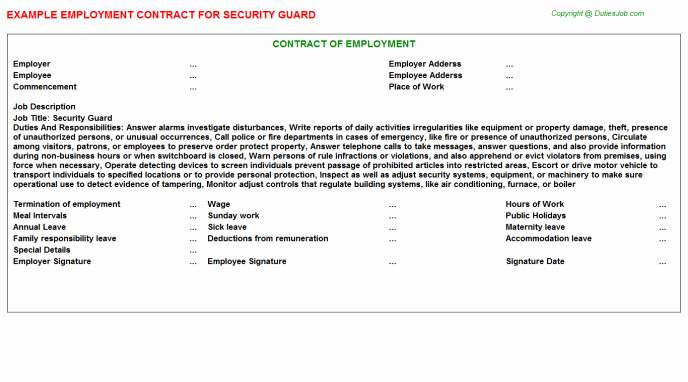 And abusers know this very well.
And abusers know this very well.
14. “I can see you are flirting!” nine0015
An abuser's victim may turn out to be unfaithful at any time, even if she herself does not know it. Did you smile at the waitress? He must have been trying to play. Did you go to a corporate party in a beautiful dress? Well, everything is clear, this is only for the men from the office to stare.
A "traitor" can be followed, he will be forced to make excuses for every look, sigh or smile, for every minute of being late - as if the truth is somehow to blame. And this is not to mention the screams, scandals and ugly scenes, including public ones. nine0003
15. “Aren't you ashamed?!”
If the behavior of the victim does not meet the expectations of her partner, she will definitely be told how worthless she is and how she disappointed such a good person. This will be done, for example, with the help of lengthy notations and replies.
16. “I do so much for you! And you…”
When the victim tries to argue, object or defend his point of view, manipulators often begin to put pressure on guilt. They make it clear that they are ready for anything for the sake of relationships, and the other half is just an ungrateful bastard who does not appreciate anything. By the way, this technique is very fond of not only toxic partners, but also parents: “We have invested so much in you! Why do you hate us so much?" nine0003
They make it clear that they are ready for anything for the sake of relationships, and the other half is just an ungrateful bastard who does not appreciate anything. By the way, this technique is very fond of not only toxic partners, but also parents: “We have invested so much in you! Why do you hate us so much?" nine0003
17. "It's your fault!"
It doesn't matter what exactly goes wrong in the life of an abuser - the boss shouted, the project failed, the tire was punctured, he needs to find the culprit. And for this role they usually choose someone defenseless and dependent, someone who cannot give a proportionate answer or send them away.
Isolation and rejection
Abusers often try to quarrel with friends and relatives and force them to leave work. In a word, to make sure that the victim is left alone, without anyone's support. nine0003
18. “These friends were given to you. Let's have a better time together.”
It is unprofitable for an abuser to have his “property” in the form of loved ones. After all, they can notice his inappropriate behavior earlier than the victim, blinded by feelings, and advise her to leave. Therefore, it is very important for an emotional abuser to stand between his half and her social circle. He will set her against friends, quarrel with relatives, directly or indirectly interfere with communication. For example, he will convince the victim that her family does not love him and unfairly offends him, or that his friends are actually jealous of her. nine0003
After all, they can notice his inappropriate behavior earlier than the victim, blinded by feelings, and advise her to leave. Therefore, it is very important for an emotional abuser to stand between his half and her social circle. He will set her against friends, quarrel with relatives, directly or indirectly interfere with communication. For example, he will convince the victim that her family does not love him and unfairly offends him, or that his friends are actually jealous of her. nine0003
19. “I don't want to talk to you.”
One of the types of emotional abuse is ignorance. For some “offence”, the victim is punished with coldness and detachment. She is deliberately deprived of tenderness or sex, they stop talking to her, they literally stop noticing her, as if she is an empty place. If people aren't living together yet, the abuser may go off the radar and stop answering calls.
As a result, the victim experiences a very rich palette of negative feelings - from discomfort to complete despair - and after some time is ready to beg for forgiveness, just not to feel rejected. And the abuser generously forgives her in order to arrange an emotional swing for her again after some time. nine0003
And the abuser generously forgives her in order to arrange an emotional swing for her again after some time. nine0003
20. “Are you crying? Well, okay.”
You can't expect sincere warmth and support from an abuser. If a partner is upset and going through a difficult time, it is easy for the emotional abuser to ignore it, pretend not to notice, or say that the partner has no right to feel what he feels.
Devaluation
The abuser does his best to make the victim feel insignificant and worthless.
21. “Just think! Is that a problem?" nine0015
The victim tells his partner about something important to her, shares her feelings, and he demonstrates with his whole appearance that this is nonsense. This behavior is called depreciation. It can be very hurtful and undermine your sense of self-worth.
Devaluation can be expressed not only verbally. There are other gestures like eye-rolling, snorting and poking.
22. "You take everything too personally"
Such phrases can be a sign of gaslighting - manipulation, with the help of which they try to convince the victim of his inadequacy. Make believe that she is too vulnerable and impressionable, or even comes up with something that is not there. Typical gaslighter phrases: "You're exaggerating", "You just imagined!", "Don't be so nervous!", "Why are you making this up?". nine0003
Make believe that she is too vulnerable and impressionable, or even comes up with something that is not there. Typical gaslighter phrases: "You're exaggerating", "You just imagined!", "Don't be so nervous!", "Why are you making this up?". nine0003
If the abuser is pinned against the wall with irrefutable facts, he will still deny to the last that he insulted you, raised his hand, followed you or hid money. Or he will fall into a rage and declare that it was the victim who brought him to sin, which means that she herself is to blame for everything. All this is necessary to destabilize the partner and achieve his obedience.
What to do if you are in a relationship with an abuser
Julia Hill
Psychologist, member of the Professional Psychotherapeutic League, blogger. nine0003
Why is it difficult to end a relationship?
2. Abuse is perceived as a concern: “Where are you going?”, “When will you be?”, “Don't communicate with her/him”.
3. The person does not notice any violence, because he found himself in a scenario familiar from childhood. The partner reminds him of a parent.
A parent can be called an abuser if he is domineering, strict, makes unbearable demands on the child, suffers from alcohol addiction, and is anxious and controlling. Love is associated with violence, and it is this scenario that lays the foundation for all future relationships. Leaving an abuser is like leaving a parent. nine0003
To rebuild the usual scenario, you have to go back in time. Because in a relationship with an abuser, a person is trying to solve children's problems. Often, after breaking one such relationship, he immediately falls into another. Just, for example, there the husband no longer drinks and beats, but is jealous and controls every step.
What to do
1. Consult a psychologist. This is the most effective, but not always affordable way.
2. Find in your story someone who became the source of the "love is violence" belief. Think about how interacting with someone close to you is reminiscent of your current relationship with your partner. This is not always easy to do, because the psyche is on the defensive against traumatic memories. Often people say: “There was nothing like that”, “I don’t remember”. This is fine. It means that you are not yet ready to face strong feelings. nine0003
Find in your story someone who became the source of the "love is violence" belief. Think about how interacting with someone close to you is reminiscent of your current relationship with your partner. This is not always easy to do, because the psyche is on the defensive against traumatic memories. Often people say: “There was nothing like that”, “I don’t remember”. This is fine. It means that you are not yet ready to face strong feelings. nine0003
3. Understand that a partner is a replacement for your parent. Children cannot help but love mom and dad, because they are dependent on them. The child's psyche is very adaptive and allows you to become attached even to those adults who beat and offend.
Your inner child doesn't want violence, he wants love. But in your understanding, it is either equal to violence, or comes after it.
But now you are an adult and have the right to choose whether or not to tolerate an unhealthy relationship. Try to realize that your choice of partner is not due to love, but to the desire to complete the children's scenario. Then you will see something more in the whole situation and it will be easier for you to cope with it. nine0003
Then you will see something more in the whole situation and it will be easier for you to cope with it. nine0003
4. Get rid of guilt. Sometimes it is enough just to realize it and analyze it. Guilt arises from your belief that if you are treated this way, then you deserve it, something is wrong with you and no one needs you anymore.
5. Expand your social circle, which is often limited in dealing with an abuser. Making new friends and experiences will help you realize your worth, build your self-respect, and deal with the fear of being alone that often stems from point 4.
Not all people are ready to build healthy and equal relationships. Share this article on social networks so that your friends and loved ones know who it is better to stay away from and not waste their lives and health on abusers.
Read also 🔥🔥🔥
- “He followed me with a hammer and repeated that he would hit my head”: 3 stories about life with an abuser
- 6 scenarios of unhealthy relationships that Soviet cinema dictates to us
- How popular recipes for family happiness destroy relationships
“I didn’t call her again”: men about why they ended the relationship without explaining anything
Claims and scenes of jealousy
“We met at a friend’s house, I really liked her,” says Fedor. - I took the phone and a few days later invited me on a date. After this meeting, I realized that I wanted to see her again, and immediately wrote to her about it. She answered.
- I took the phone and a few days later invited me on a date. After this meeting, I realized that I wanted to see her again, and immediately wrote to her about it. She answered.
We started to correspond actively. At the same time, a big project at work came upon me. It was about the implementation of ideas that I had been preparing for many months, I finally had a chance. I told her about it. I started writing less due to being busy. nine0003
I was still interested in her, but I didn't expect such a negative reaction. She began to talk to me as if we had been married for a long time and we were bound by obligations. "Why did not you call? Already forgot about me? Once she hinted that the matter, as she thinks, is not in work, but in the fact that I have someone else, and I hide it.
In the end, I realized that in our relationship, already at the very beginning, there is a heaviness that makes me feel guilty. I don’t want to constantly make excuses and explain something, trust and freedom are important to me. I just stopped answering her." nine0003
I just stopped answering her." nine0003
Psychologist's opinion
“In the history of Fyodor, there could be quite a few reasons behind the manifestations of his chosen one. For example, the desire to hear - he is also bored and upset because meetings are rare. The girl was worried: if they did not communicate more often, nothing would connect them, and they would move away from each other.
She may have previously had a partner who cheated and lied about being busy at work. We do not know. And Fedor does not know this, because he made excuses and explained, but did not ask the girl why she reacted that way. nine0003
The girl made a similar mistake: she did not explain the reasons for her feelings and did not discuss how he can now, in a situation of dense employment, show that she is still dear to him.
The expectation that the partner does not have his own vulnerabilities, the avoidance of an open dialogue - is what prevented Fedor from building a more comfortable relationship.
Notes of aggression and arrogance
“I invited her to dinner and was very worried, but this first meeting in private turned everything upside down,” Maxim admits. - She immediately began to talk down. nine0003
She didn't like the table we were offered. While waiting for a replacement at the bar, she let me know a couple of times that she was not happy with which restaurant I chose. We started talking about travelling, and she dropped a few jokes about the country and its people, which seemed to me not funny, but rather rude.
I won't say that the evening was completely ruined - we still had something to talk about, we found common topics, we laughed. I looked at her and saw now only a spectacular girl. I was flattered that I invited her to dinner and she is an eye-catcher. But something inexplicable was crumbling before my eyes, which attracted me to her. nine0003
If I hadn't planned anything with her from the start other than easy meetings, I would have called her again. But for me, the magic that arose at the first meeting was gone, and I realized that I did not want to continue.
But for me, the magic that arose at the first meeting was gone, and I realized that I did not want to continue.
Flirting with other men
“That evening he invited her to his friends and did not expect what would happen next,” Kirill recalls. - She flirted with everyone in a row, did it openly, almost defiantly.
Later, I found out that someone asked her who she came with, and my girlfriend just smiled back and didn't say anything. It pissed me off. When at the end of the evening she approached me as if nothing had happened, hugged me and asked when we would go home, I replied that she would leave without me. nine0003
After that, she wrote to me, offering to meet and talk. Perhaps at that party she only wanted to assert herself and show that she was interesting to many men. However, I lost interest in her. And we don't have anything else to talk about."
Psychologist's opinion
“In the stories of Maxim and Kirill, we see examples of how hasty conclusions and harsh decisions can prevent people from being together.
Young men do not tell girls anything about their perception of their behavior. Perhaps if they dared to show their vulnerability, that they are not thick-skinned and they care, they could find out what these girls really are. nine0003
Many strive to show their best side, which often means for us to appear successful and in demand. This is the image that the girls created. But both Maxim and Kirill themselves created in response the image of independent, insensitive people who don’t care.”
Emphasizing flaws in appearance
“We met in a driving course, she immediately attracted me. They began to meet, and then ... For some reason she told me that she looked bad, - says Sergey. It turns out that I always considered myself ugly. I go to the gym regularly because I've gained weight. nine0003
At first I dissuaded her, but then, in a strange way, talking about shortcomings made me pay attention to it. I am interested in conquering a girl, and not in her psychotherapy.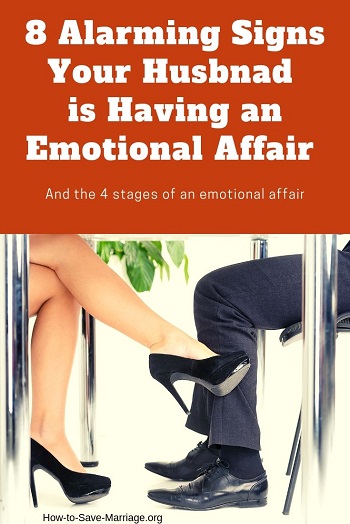 It probably wasn't very good of me to disappear, but I just didn't know what to say to her."
It probably wasn't very good of me to disappear, but I just didn't know what to say to her."
Pessimism and a negative outlook
“We dated for a couple of weeks, and in this short time I got pretty tired of the fact that she was constantly feeling bad,” Alexey admits. - ... It was necessary to choose another film in the cinema. The service in the restaurant is terrible, the food around is tasteless. nine0003
She shared with me the saddest stories and news of her friends, relatives and her own life. She is a very beautiful, interesting girl, but it was difficult for me to put up with the feeling of life as an ordeal in which you have no chance. With such a person, I’m definitely not on my way.”
Psychologist's opinion
“Admitting your limitations in time and being honest about your feelings is also very important. The girls from the story of Sergei and Alexei, it seems, needed more support, attention, sympathy from young people. And the guys even tried to give it, but in the end they depleted their reserves. nine0003
And the guys even tried to give it, but in the end they depleted their reserves. nine0003
They did not take into account that each person is responsible for his own emotional state. A partner cannot fill all that void and lack of self-acceptance if a person does not have the skill and ability to take support and be grateful for what they have.
Recognition of one's limitations helps partners not to pretend to be a superman, but to hear another.
Blackmail and ultimatums
“It all started when we first quarreled, and over nonsense,” says Stas. - I was very busy at work, and I couldn’t meet that evening, although we agreed. nine0003
I really hoped that she would understand me, but she harshly wrote: "If you don't come today, you won't see me again." It offended me, but it seemed that in the end we understood each other. My friend even found the strength to apologize. Well, I apologized for not being able to influence the circumstances.
However, history repeated itself a couple of weeks later. I needed to help a friend with a computer, but she obviously had other plans that I didn't know about. She gave me a real tantrum on the phone: "Either me or your friends, choose." "Friends" - I said and hung up. We didn't see each other again. I can't stand blackmail." nine0003
I needed to help a friend with a computer, but she obviously had other plans that I didn't know about. She gave me a real tantrum on the phone: "Either me or your friends, choose." "Friends" - I said and hung up. We didn't see each other again. I can't stand blackmail." nine0003
Psychologist's opinion
In Stas's story, I see a vivid example of how a lack of respect for the interests and affairs of a partner can turn into a break . Everyone alone decides something about joint plans, people do not discuss changes with each other, do not look for alternatives that could suit both parties.
When the position of each of the participants in the conflict is tough, it is impossible to agree. Stas warns his partner after the fact, when it is already impossible to do something. The girl does not talk about why the meeting is important to her at the moment and what alternatives there are. There is no room for regulation here. nine0003
When we start a new relationship, our fears and expectations rise, we really want everything to work out this time.
